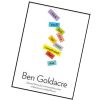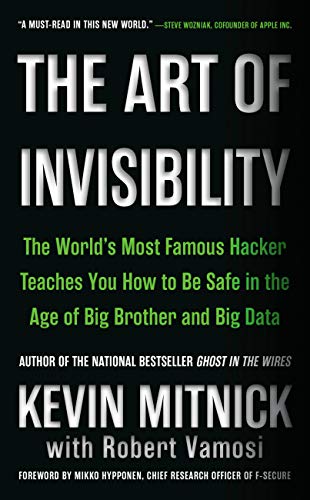10 Network Security Books That Define Cyber Defense
Recommended by Laurence Tribe, Clayton Morris, and Bruce Schneier, these Network Security Books offer authoritative guidance and practical expertise.







What if the very networks we depend on daily are battlegrounds for unseen wars? Network security is no longer just a technical concern—it's a front line where nations, hackers, and corporations clash. As cyber threats evolve, understanding the tactics and tools behind network defenses is crucial for anyone navigating the digital age.
Experts like Laurence Tribe, a constitutional law scholar, highlight how cyber conflicts influence global politics, citing books like Sandworm to illustrate election manipulation through hacking. Meanwhile, Clayton Morris, a financial freedom advocate, emphasizes the urgency of grasping cyberattack risks detailed in This Is How They Tell Me the World Ends. Their endorsements reveal the essential interplay between cybersecurity and broader societal impacts.
These 10 Network Security books offer proven frameworks and deep insights recommended by leading voices. While these provide a solid foundation, you might also consider creating a personalized Network Security book tailored to your experience, interests, and goals to accelerate your learning journey.
Recommended by Laurence Tribe
Constitutional law scholar, Harvard Law Professor
“Vote augmentation looks like the newest form of election manipulation. It was a favorite Putin/GRU technique in Estonia, Georgia, and Ukraine. See Andy Greenberg’s book “Sandworm.”” (from X)
by Andy Greenberg··You?
While working as a senior writer for Wired, Andy Greenberg observed the escalating cyber conflicts driven by state actors like Russia, which inspired this detailed investigation into the Sandworm hacking group. You’ll gain a clear understanding of how cyberwarfare has evolved beyond traditional battlefields, with chapters that trace attacks like NotPetya and their devastating effects on infrastructure from hospitals to global businesses. This book suits those interested in cybersecurity’s real-world impact, revealing how digital offenses shift geopolitical power and national security. If you want to grasp the intersection of cyber operations and international relations, this book offers precise insights without unnecessary jargon.
Recommended by Clayton Morris
Financial Freedom Fighter and Real Estate Investor
“Just finished "This Is How They Tell Me the World Ends”. This is a must read book on cyber attacks.” (from X)
by Nicole Perlroth··You?
by Nicole Perlroth··You?
When Nicole Perlroth first uncovered the secretive world of zero-day cyberweapons, she revealed a chilling narrative of global digital warfare. Drawing on her decade as The New York Times' lead cybersecurity reporter, she exposes how governments hoarded vulnerabilities before losing control to hostile actors, risking everything from elections to critical infrastructure. You’ll gain insight into the shadowy market of cyber arms, the ethical dilemmas hackers and agencies face, and the real-world consequences of these unseen conflicts. This book suits anyone seeking a deep understanding of cyber threats beyond technical jargon, especially policymakers, security professionals, and concerned citizens.
This tailored book explores the essential concepts and practices of network security, crafted specifically to fit your background and learning goals. It examines core principles such as threat detection, risk assessment, and defense mechanisms, while delving into advanced topics like firewall configuration and penetration testing. By focusing on your interests and current knowledge, this personalized guide reveals how to build robust network defenses and anticipate evolving cyber threats. It encourages an active learning experience that bridges foundational knowledge with practical challenges faced in securing digital networks. Through this tailored approach, you gain focused insights that align perfectly with your objectives, making complex security topics accessible and relevant.
by James Forshaw··You?
Unlike most network security books that focus on defensive setups, this work by James Forshaw offers an attacker’s lens to network protocols, revealing how vulnerabilities can be discovered and exploited. You’ll gain concrete skills in capturing and manipulating packets, understanding protocol structures, and even developing tools to dissect traffic using frameworks like Wireshark. Chapters on fuzzing, debugging, and cryptography provide a solid foundation for identifying memory corruptions and authentication bypasses, making this particularly useful if you’re a penetration tester or developer aiming to deepen your understanding of protocol-level security. It’s a technical read best suited for those ready to move beyond basics and into active exploration of network weaknesses.
Recommended by Alex Caceres
Owner of Hyperion Gray, DARPA researcher
“@gvgm3 @SecurityTube For networks I'd have to say hands down the OSCP is likely one of the best you're going to find. Fuck the cert, take the course, get down and dirty in the labs and break everything. I hear @georgiaweidman's book is good (Pen testing with Metasploit) but have not read it myself” (from X)
by Georgia Weidman··You?
by Georgia Weidman··You?
Georgia Weidman, a seasoned penetration tester and founder of Bulb Security, wrote this book to bring aspiring hackers into the fold by focusing on hands-on learning rather than theory alone. You'll gain practical skills like cracking passwords, exploiting vulnerabilities with Metasploit, and even mobile hacking using her Smartphone Pentest Framework. Chapters walk you through real tools such as Wireshark and Nmap, guiding you through information gathering to post exploitation stages. This is ideal if you're serious about understanding the mechanics behind penetration testing and want a tactile, immersive approach to network security.
Recommended by Bruce Schneier
Author of Secrets and Lies and Schneier on Security
“An exciting and readable story of the world's first cyberweapon. Zetter not only explains the weapon and chronicles its discovery, but explains the motives and mechanics behind the attack—and makes a powerful argument why this story matters.” (from Amazon)
by Kim Zetter··You?
During her work as a cybersecurity journalist for Wired, Kim Zetter uncovered the unprecedented story of Stuxnet, the first digital weapon designed to physically sabotage Iran's nuclear program. This book offers you detailed insights into the virus's development, deployment, and the geopolitical implications of cyber warfare, explaining complex technical elements with clarity. You'll learn about the hidden world of zero-day exploits, the vulnerabilities of critical infrastructure, and the evolving landscape of digital conflict. If you're interested in how cyberattacks transcend traditional boundaries to cause real-world damage, this book provides a compelling narrative with deep investigative reporting.
This tailored book offers a practical, step-by-step plan focused on network security improvements achievable within 30 days. It explores essential defensive techniques, system hardening, and threat mitigation tailored to your background and specific goals. By concentrating on your unique interests, it reveals how daily, focused actions build stronger cyber defenses without overwhelming you with unnecessary details. The book covers foundational concepts and advances toward tactical implementations, providing a clear and approachable pathway through complex security challenges. This personalized guide matches the collective knowledge of network security experts with your individual learning needs, creating a focused journey to enhance your organization's cyber resilience effectively.
by Dan Borges··You?
Dan Borges's experience across Uber, Mandiant, and CrowdStrike fuels this exploration of real-time cyber conflict, focusing on the duel between attackers and defenders. You gain concrete skills like implementing process injection, mastering cyber deception, and deploying active defense tactics with practical code examples. The book uniquely divides each chapter into offensive and defensive perspectives, giving you a dual lens on network infiltration and countermeasures. Whether you're a pentester, SOC analyst, or security engineer, you’ll walk away understanding how to operate stealthily in memory, manipulate adversaries, and manage live incidents with agility.
Recommended by BookAuthority
“One of the best Cyber Security books of all time” (from Amazon)
by Alan J White, Ben Clark··You?
by Alan J White, Ben Clark··You?
Drawing from his deep expertise in cybersecurity incident response, Alan J White crafted the Blue Team Field Manual to serve as a tactical companion for professionals defending networks. This concise guide walks you through the NIST Cybersecurity Framework’s five core functions—Identify, Protect, Detect, Respond, and Recover—offering specific commands and procedures to execute during each phase of a cyber incident. You’ll gain practical skills for managing real-time threats and restoring systems efficiently, grounded in frameworks trusted by security teams worldwide. If you’re involved in network defense or incident handling, this manual equips you with clear, actionable tools that cut through complexity without overwhelming detail.
Recommended by Dameon Welch
Cyber Security Evangelist, Check Point Software Technologies
“In the 20 years since Essential Check Point FireWall-1 NG was published, I’ve been asked numerous times if I was going to write another book on Check Point firewalls. If I were going to do so, I’d probably take the approach that Vladimir has taken in this book. There are concise explanations of the essential features of the Check Point Quantum Security Gateway and Management products, along with step-by-step instructions and annotated screenshots! If you’re just getting started with deploying Check Point Quantum Security Gateways, or you’re trying to refresh your knowledge, this book is a great place to start.” (from Amazon)
by Vladimir Yakovlev··You?
Vladimir Yakovlev leverages over two decades of experience with Check Point products to guide you through their deployment and administration in this detailed manual. You’ll learn how to install, configure, and manage Check Point firewalls with clear instructions and annotated screenshots, covering everything from creating access control policies to operating high-availability clusters. The book walks you through practical scenarios, such as configuring NAT options and using identity awareness for granular rules, helping you build confidence with these complex security tools. If you’re an IT or cybersecurity professional looking to deepen your skills or transition into firewall administration, this book offers a solid, hands-on foundation without unnecessary jargon.
Recommended by Ben Goldacre
Doctor, academic at Oxford CEBM
“Oh wow Twitter say this huge hack was done through a coordinated social engineering attack. Hugely recommend Kevin Mitnick's book on this: The Art of Deception. Also a great example of (openly disclosed) ghost writing making a technical topic very readable” (from X)
by Kevin Mitnick··You?
Kevin Mitnick's decades of experience as a hacker and security consultant culminate in a down-to-earth guide that demystifies online privacy threats and defense techniques. You learn specific tactics to protect your data and identity, from managing passwords and secure Wi-Fi use to advanced anonymity strategies rooted in real hacking cases. Chapters break down complex risks like social engineering attacks with clear examples, empowering you to spot vulnerabilities before they’re exploited. This book suits anyone concerned about digital privacy, especially those wanting practical knowledge without jargon overload.
by Rick C. Worley··You?
The breakthrough moment came when Rick C. Worley, a seasoned technology expert, combined his extensive knowledge of computer networking with practical cybersecurity tactics to create this comprehensive guide. You’ll gain concrete skills in detecting, preventing, and managing cyber threats across various platforms, from networks to mobile devices and cloud services. Detailed chapters cover everything from building security teams to crafting incident response plans, supported by hands-on exercises that reinforce learning. If you’re a programmer, IT technician, or computer science student seeking a clear path to mastering cybersecurity essentials, this book offers a structured approach without overwhelming jargon.
Get Your Personal Network Security Guide Fast ✨
Stop following generic advice. Receive targeted strategies tailored to your needs without reading 10+ books.
Trusted by leading cybersecurity professionals worldwide
Conclusion
This collection of 10 Network Security books reveals a layered understanding of the field—from geopolitical cyberwarfare and zero-day exploits to hands-on penetration testing and firewall administration. If you're tackling high-level strategic risks, books like Sandworm and Countdown to Zero Day provide the context you need. For practitioners seeking actionable skills, Penetration Testing and Blue Team Field Manual deliver practical guidance.
Rapidly evolving threats demand continual learning. Combining the strategic perspectives with tactical manuals offers a balanced approach. Alternatively, if you want to bridge general principles with your unique challenges, consider creating a personalized Network Security book for focused insights.
These expert-recommended books are more than reading material—they're tools to sharpen your defenses and deepen your understanding. Your next step toward mastering network security starts here.
Frequently Asked Questions
I'm overwhelmed by choice – which book should I start with?
Start with The Cybersecurity Bible for foundational skills, then explore Penetration Testing for hands-on experience. These build a solid base before diving into advanced topics like cyberwarfare.
Are these books too advanced for someone new to Network Security?
Not at all. Books like The Cybersecurity Bible and The Art of Invisibility are accessible to beginners, offering clear explanations without heavy jargon, making them great entry points.
What's the best order to read these books?
Begin with foundational guides, then tackle practical skills like penetration testing. Afterward, explore strategic books on cyberwarfare and incident response to understand the broader context.
Can I skip around or do I need to read them cover to cover?
You can definitely skip around. Many books serve as references for specific skills or topics, so feel free to focus on chapters that match your immediate needs.
Which books focus more on theory vs. practical application?
Sandworm and Countdown to Zero Day offer theoretical and geopolitical perspectives, while Penetration Testing and Blue Team Field Manual focus on practical tactics and tools.
How can personalized Network Security books complement these expert recommendations?
Personalized books tailor expert knowledge to your specific background and goals, helping you apply general principles directly to your situation. They complement expert reads by focusing on what matters most to you. Explore creating your own for targeted learning.
📚 Love this book list?
Help fellow book lovers discover great books, share this curated list with others!
Related Articles You May Like
Explore more curated book recommendations









![The Cybersecurity Bible: [5 in 1] The All-In-One Guide to Detect, Prevent, and Manage Cyber Threats. Includes Hands-On Exercises to Become an Expert and Lead Your (First) Security Team book cover](https://m.media-amazon.com/images/I/51xjjGp26RL._SL500_.jpg)